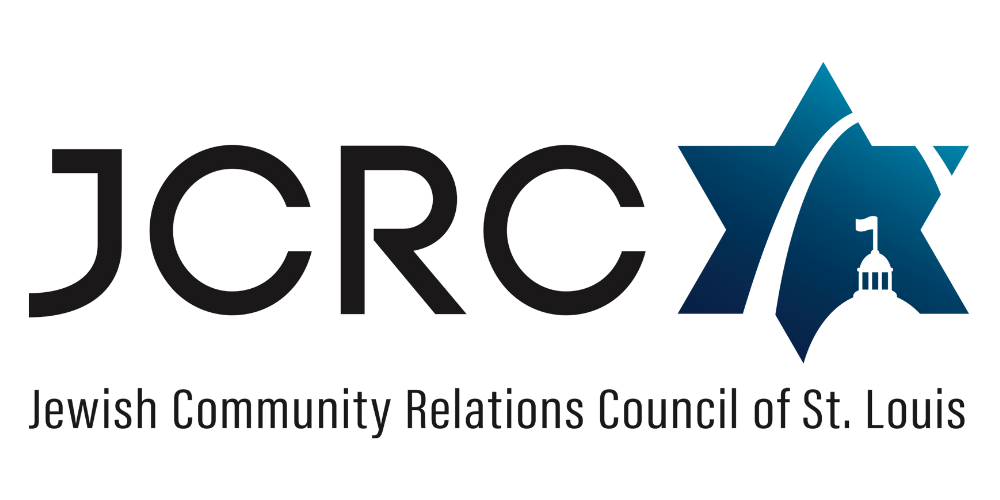May 2014 Human Trafficking
Co-sponsored by Temple Emanuel and National Council of Jewish Women-St. Louis Section
As Jews, we were slaves in Egypt, and now we are free; our collective memory of escape from bondage and reaching freedom for ourselves is something that shapes our identity and values. Today, we have an obligation to speak out and act whenever human beings are enslaved, wherever that may occur throughout the world. It is a Jewish imperative to speak out whenever lives are in danger.
Human trafficking involves the use of force, fraud, and/or coercion for the purpose of sexual exploitation or forced labor and, under federal and state law, does not require movement of people across borders. It is believed there are currently 27 million slaves worldwide. The U.S. State Department estimates that 600,000 to 800,000 people are victims of human trafficking in the U.S. annually, 100,000-300,000 of which are children. Human Trafficking is modern day slavery
The issue of human trafficking has been identified as a priority by both the Jewish Federation of North America and the Jewish Council for Public Affairs.
Human trafficking is a major crime occurring in the St. Louis region. St. Louis has been identified as one of the top twenty regions where human trafficking is prevalent. Women, men, teenagers, and children in all economic and social circumstances can fall prey to traffickers who may threaten their lives and those of their families, isolate victims, and make it impossible for them to escape. According to federal law, Human trafficking includes sex and labor trafficking. Victims of sex trafficking can be found working in massage parlors, brothels, strip clubs and escort services. They can be found through the internet and on the street. They are often lured by false promises and ultimately forced into prostitution. Not all engaged in sex work are trafficked, but many are. Labor trafficking occurs in many types of domestic and non-domestic situations. Victims work as nannies and maids, in sweatshops, restaurants, construction jobs and other locations. Victims are trapped in a cycle of involuntary servitude, debt bondage and slavery.
With respect to sex trafficking, current law enforcement often does not recognize trafficking victims as such, and treats them as criminals. Prostitutes and sex workers are often arrested, criminally charged with felonies, jailed and then released to go back on the streets. Many of the victims are addicted to drugs, and receive no assistance in their recovery. At the same time, the buyers and sellers are often not arrested, nor charged with any crime.
In 2000, the 106th Congress passed the first comprehensive federal law addressing human trafficking – the Trafficking Victims Protection Act (TVPA) – that required the U.S. Department of State to release an annual Trafficking in Persons (TIP) report to monitor trafficking globally among other critical measures in the bill. The TVPA has been reauthorized many times, last in 2013, with many meaningful improvements including a 2003 provision that urged states to set up systems to combat trafficking for the first time within U.S. borders.
In the St. Louis community, an interfaith coalition has been formed to speak out on the issue of sex trafficking, and to advocate forcefully for changes in laws and in attitudes to recognize the victims of sex trafficking deserve help and support from the community, instead of being treated as perpetrators and criminals. The interfaith coalition also has issued a statement condemning sex trafficking . The coalition is working to advocate safe havens for victims of sex trafficking, and to help victims combat substance abuse, obtain education and job training, and become productive members of society.
The JCRC supports the vigorous enforcement of current federal laws on human trafficking, and further advocates for changes to state and local laws that would allow the victims of human and sex trafficking to be eligible for government entitlement programs - including the Supplemental Nutrition Assistance Program (SNAP, formerly known as food stamps), Medicaid, and Temporary Assistance for Needy Families (TANF). Presently, if a victim of sex trafficking is charged with a felony offense, the victim is barred from receiving entitlement benefits from the state.
Therefore, the JCRC should lend its voice to the efforts of interfaith coalitions and community groups working to eradicate human trafficking. Those efforts include:
1. Educating the Jewish community, the public (including young people) and elected leaders about the problem of human trafficking globally, nationally and locally.
2. Advocating for vigorous enforcement of existing laws, and supporting changes to federal, state and local laws that will strengthen prosecution of those who engage in acts of human trafficking.
3. Assisting the victims of trafficking in becoming productive members of society.
“Report on Activities to Combat Human Trafficking,” Civil Rights Division, United States Department of Justice, p. 4 (2006)

